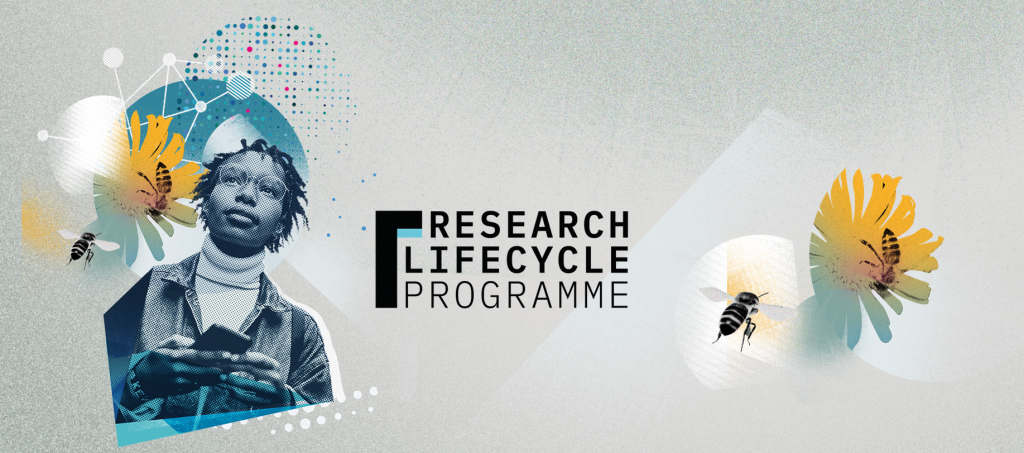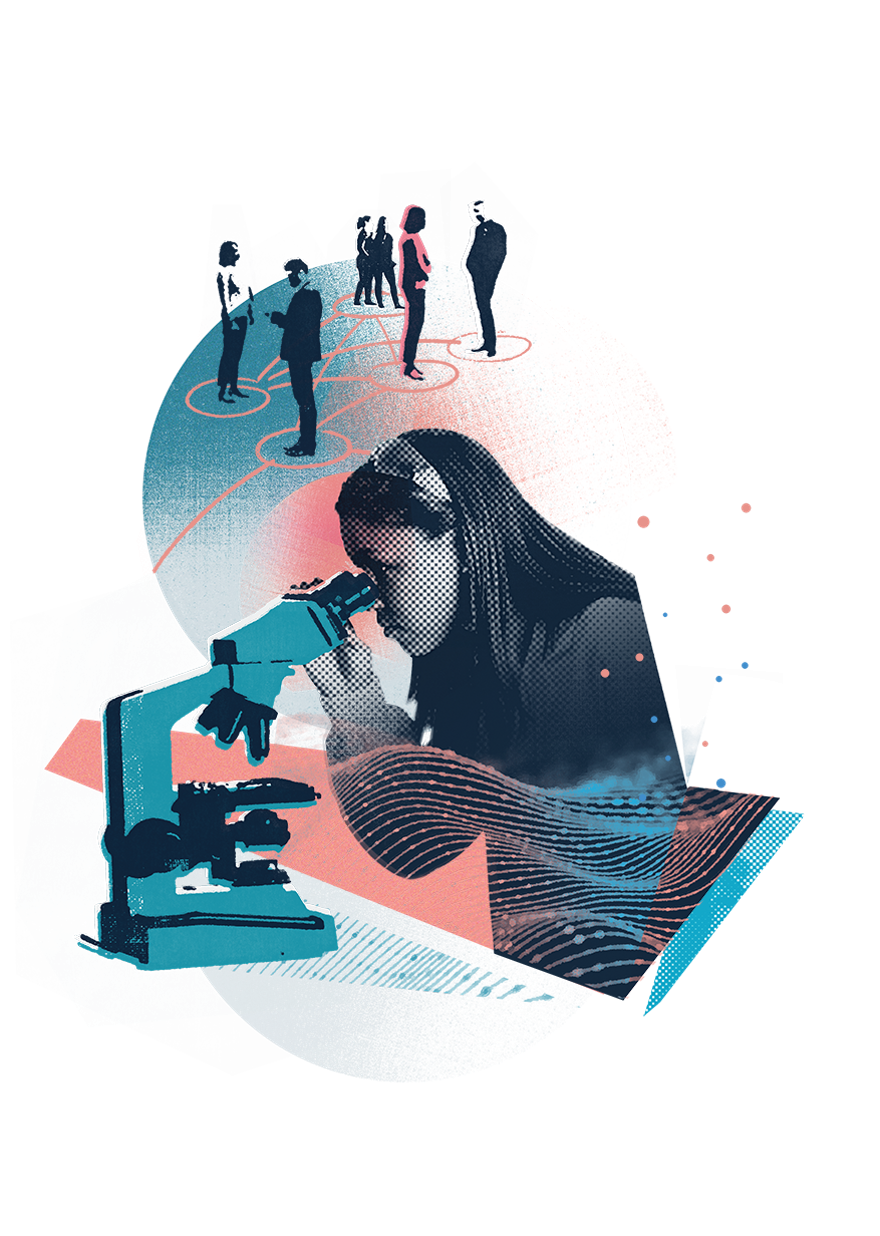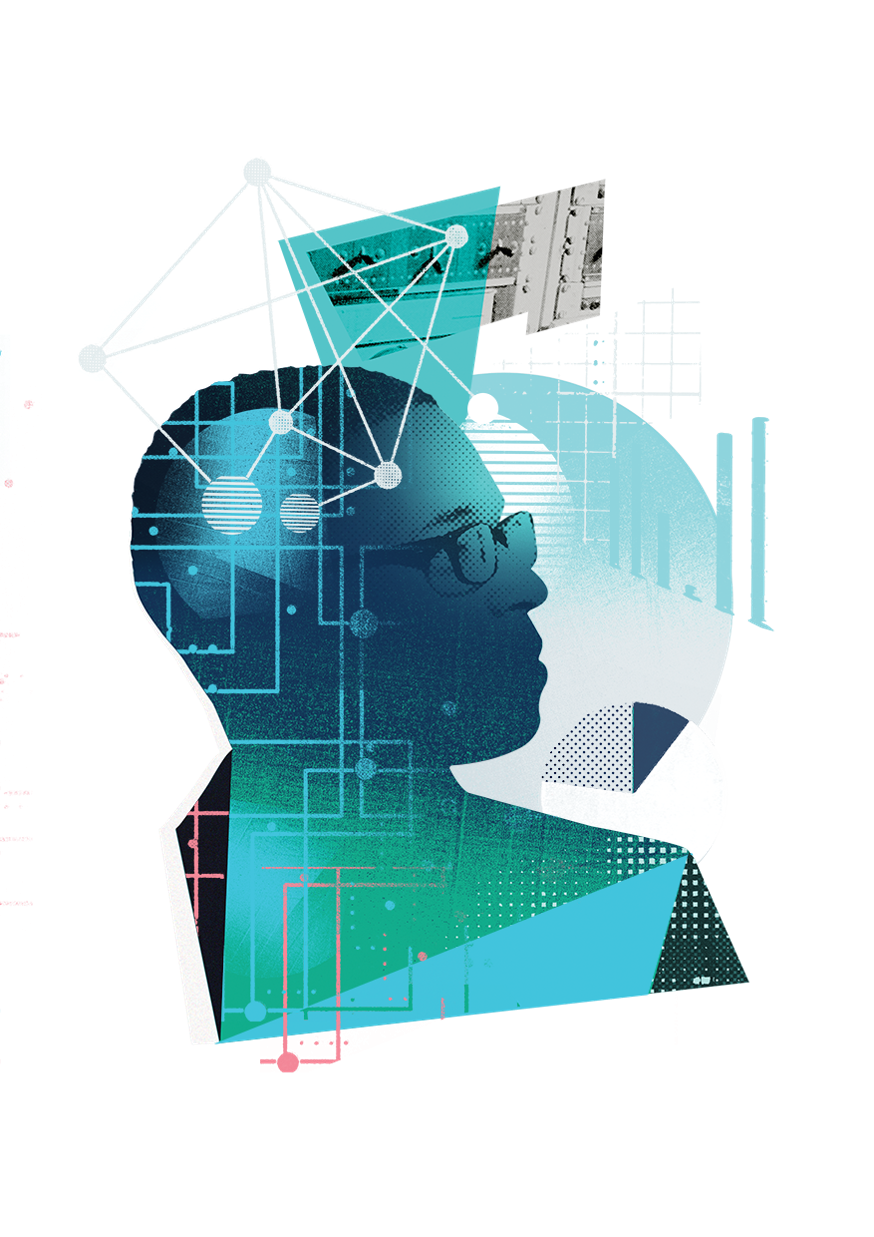
Update on the RLP’s 2020/21 focus areas
The Research Lifecycle Programme (RLP) is a series of investments of over £15 million. The overarching goal of the programme is to uplift research support in the University, to help researchers focus more on their research and remove administrative and technological barriers from their way.
The RLP, which is in year 3 of its 5 year journey, focuses on three areas of work:
- Research information – How researchers find and manage information
- Research processes – How we enable better research support at The University of Manchester
- e-Research infrastructure – A combination of digitally-based technology and the people and organisational structures needed to support modern, internationally leading, collaborative research.
Out last programme update detailed our focus areas for the 2020/21 academic year. Here’s an update on where we are up to now:
Research information projects
Facilitate research networking and collaboration (Project E)
The overall aim of the networking and collaboration project is to enable better, higher impact research by providing the research community with tools and ways to collaborate and network effectively, for both researchers and PS staff.
In July 2020, the project launched Overleaf, an online collaborative authoring tool for all staff, researchers and PGRs at the University. The project team have also been analysing feedback from workshops held in the summer focusing on research networking and collaboration. They have also been feeding researcher requirements to many different teams across the university including IGO, IT Modernisation and the Secure Collaboration Working Group.
Develop a service to manage restricted data (Project S)
The purpose of this project is to develop a service that will support researchers at The University of Manchester in managing access to, and use of, highly restricted data from a diverse range of sources (eg Office of National Statistics, NHS Digital, government organisations, commercial partners etc.). The University needs to ensure compliance with GDPR, Export Control and other legal and governance frameworks at a time when demand for research that utilises sensitive data is growing.
The Data Safe Haven Plus team are now in place and available to help researchers to run projects containing highly restricted or sensitive data. The team hope to launch their new platform to support this in May 2021.
Improve management, sharing, publishing and preservation of research data (Project U)
The Project U team are currently working on the following activities:
- Work is progressing on the provision of tailored training for Research Data Management (RDM) via the Library RDM Team and partners. The team are working across several RLP projects to reflect data management requirements in their outputs, and infrastructure tools (planning, storage, collaboration and publishing) are being delivered.
- The five-year RDM Strategy and its delivery via the RLP is progressing towards establishing a RDM centre of excellence at the University. Close alignment is in place with the Library’s Office for Open Research Programme to reflect RDM as a crucial component.
- Technical implementation for the new research data repository, Figshare, is nearly complete and will see a “soft launch” in May 2021. The RDM team continue to work with researchers and projects from across the University to develop Figshare.
- Figshare will provide an ideal data publishing platform for disciplines lacking an external repository, which will help improve UOM data and research outputs. Figshare is indexed by Google Scholar and many academic search networks. Integration with Pure is ongoing and the Data Monitor tool which collects and displays UoM datasets from external repositories is being evaluated.
Manchester Digital Collections (Project V)
The Manchester Digital Collections is now a year old and has made 20 collections, drawn from across the University, available to researchers, students and the general public. This expansion will continue in 2021 alongside significant enhancements to simplify the loading process and the web site itself.
Survey tools (Project Y)
Survey tools are an essential part of collecting information for research. The aim of the Survey Tools project is to provide tools that fulfil user requirements throughout the University.
In December 2020, the project launched QualtricsXM, which is now the University’s preferred survey tool. The team are now focusing on the launch of a locally supported REDCap service, a specialist FBMH researcher’s tool of choice. The team expect to launch this service in July 2021.
Research processes projects
Enhancing support for research: End-to-end processes (Project A)
Time sheeting, producing evidence of time spent working on a project, is an essential part of grant finance management for many funders. Requirements to present evidence and logs is becoming increasingly necessary. The academic time sheeting project part of this project has started and two pilot areas have volunteered their time. Next steps are to set up the interface from Oracle Financials after which configuration of the core system can commence.
Enhancing Capabilities across Professional Services for Research (Project B)
This project aims to evolve Professional Services for Research to deliver improved clarity of roles and responsibilities, with greater understanding of staff contribution to research and clear visibility of their career paths and opportunities for progression.
The roll out and evaluation of competency management has started and will continue through 2021. Four pilot areas are contributing to the project to validate the approach and ensure the deployment is beneficial to all users.
Research support interface, reporting and communications (Project C)
The project aims to provide a tailored access point for researchers and support staff which links the underpinning service and systems related to the research lifecycle with the aim of increasing access and transparency to manage research.
The project team are currently focused on information gathering; mapping out the current research lifecycle at the University; and evaluating potential solutions.
Implement a costings approach and tool to model grants (Project D)
The current costing tool and approach to costing research projects is not compatible with the ambitions of the University to grow research income and become a top 25 global institution.
The project team are currently focusing on launching the new Research Costing Tool in April 2021 and decommissioning the old pFACT system in May 2021.
e-Research infrastructure projects
Incrementally build compute capacity and improve access to compute resources (Project M&K)
The aim of this project is to expand computational capacity and resources to meet the current growing demand and to be competitive with other Russell Group institutions. This means investing money every year in compute resources such as the University’s High Performance Computing, Graphic Processing Units and Virtual Machines.
The investment for the 20/21 academic year comprises of:
- 16 more Graphic Processing Units (GPUs) for the Computational Shared Facility 3 (CSF3) for machine learning/AI, image-processing and highly-parallel computational work.
- Commercial cloud-based resources. This investment will allow us to continue to address use-cases which are not well-served by our central, on-site computational platforms (eg the CSF). Such use-cases include on-demand use of Jupyter, RStudio and virtual desktop (both MS Windows and Linux).
Next year’s investment will be determined, as usual, by the research community’s feedback. Workshops will take place in the very near future to gather researcher’s requirements, so to ensure you have your say on what resources you need, keep an eye out on upcoming RLP newsletters and our events page for more information.
Design edge compute offering with satellite storage (Project N)
In October 2020, we launched the edge compute service, providing the research community with capabilities for computationally/data intensive work where the use of centrally-hosted platforms is impractical, not appropriate or must be augmented with additional functionality.
If you want to find out more about the service, you can listen to our webinar recording or search ‘edge compute’ on the IT Support Centre Knowledge Base.
The service has already proved very popular with multiple research groups taking up the new offering, including the National Research Facility for Xray Computed Tomography.
Research Technologies Innovation Communities (Project Q)
The purpose of the Innovation Communities (IC) project is to build communities of practice around key digital research technologies, focusing particularly on new technologies and/or where expertise is fragmented across the University.
This project is now part of the Digital Futures programme and will be working to enrich the existing cross-cutting themes.
High Performance Computing (HPC) improvements (Project Z)
HPC is a key part of research from across the University. In 2020/21, this project will continue to support:
- The operation of a conventional on-campus HPC cluster to meet the needs of researchers
- The Manchester contribution to the N8 Centre of Excellence in Computationally Intensive Research (N8 CIR)
- The Manchester contribution to the new N8 specialist high capability GPU HPC based at Durham which is now open for applications from UoM researchers
- The N8 CIR is currently putting together a training programme for the Digital Humanities and Digital Health research communities at the N8 universities as well as running computational training events for the wider N8 community.
More about the Research Lifecycle Programme:
You can sign up to receive the RLP’s monthly newsletter to your inbox to keep up to date with progress on our projects and opportunities to get involved.
The programme team are happy to tell you more about the programme and our work. If you would like us to present an update on RLP at your local meetings, please get in touch via email.














Project N1?
Hi Alex, apologies I didn’t see your comment in our WordPress list previously! The latest update on Project N1 (Databases) can be found here: https://www.rlp.manchester.ac.uk/2021/08/23/coming-soon-databases-and-data-management-service/.
Thanks, Fiona